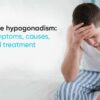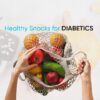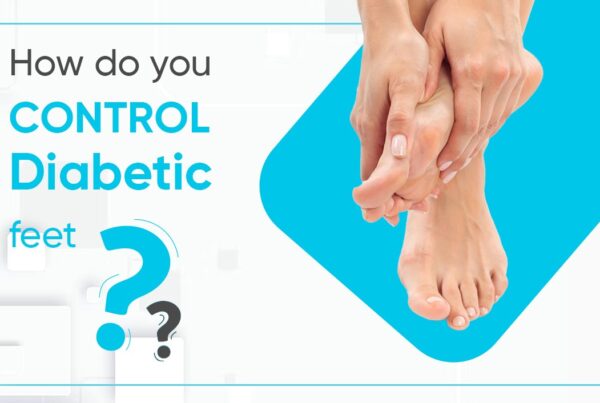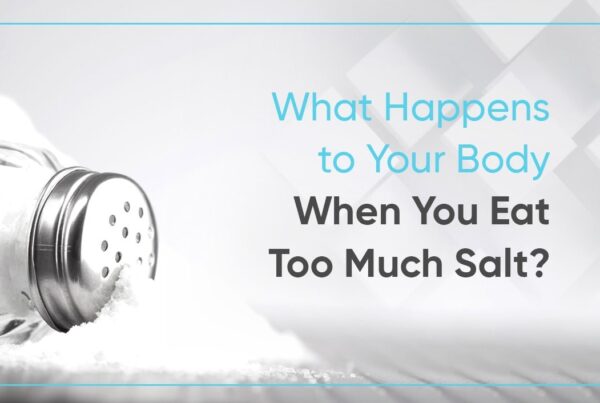Anorexia symptoms, causes, diagnosis, diet, and prevention
Anorexia nervosa, also known as anorexia, is a serious psychiatric illness and among the most dangerous eating disorders. Anorexics deprive themselves of food and have a deep fear of weight gain or being obese. Their understanding of body mass is inaccurate, which drives them to obsessively monitor their weight. They prefer to put their health and wellbeing on hold to maintain their slim and skinny appearance.
Anorexia nervosa
Anorexics usually weigh around 15% just under ideal weight. They can go to any length to avoid adding weight. They follow a strict diet, reduce the amount of food they eat, and refuse to eat even if they are hungry.
Some people reduce their calorie intake by deliberately vomiting during meals, misusing laxatives, or having other calorie-restricting drugs. Some people can exercise excessively to lose weight. They, on the other hand, seem to be afraid of being fat, no matter how slim they are.
Teenagers and young adults are especially susceptible to anorexia. It is also ranked third among the most common chronic conditions in teenagers. If you’re anorexic, you’ll often try to link your body weight and shape to your sense of self-worth. It is not only unhealthy, but it can also be fatal. However, with the right therapy, you will be able to return to healthier dietary habits in no time.
What are anorexia’s unmistakable signs and symptoms?
The physical signs of anorexia are primarily related to starvation because anorexia requires a constant desire to appear as slim as possible.
Physical signs and symptoms
The most common signs and symptoms are
1.Being thin and malnourished
2.Increased weight loss
3.Trouble sleeping.
4.Tiredness
5.Abnormal blood count
6.Feeling dizzy
7.Fainting
8.Fingers that are bluish
9.Hair that is too thin
10.Hair Loss
11.Scaly Skin
12.Amenorrhea
13.Pain in the abdomen
14.Constipation
15.Skin that is yellowish and dry
16.Intolerance to the cold
17.Low blood pressure
18.Arrhythmia
19.Swollen Legs and arms
20.Dehydration
21.Cavity
22.Anemia
Behavioral and emotional signs
Anorexia’s mental and behavioral effects are linked to a fear of being obese. Some popular signs include
1.severely restricting food intake
2.Excessive physical activity
3.usage of laxatives, herbal products, or enemas to get rid of food
4.Unrestricted fasting
5.Refusal to eat
6.Reduced libido
7.Selecting foods, especially those that are low in fat and calories
8.Absence of feeling
9.Putting on several layers of clothing
10.Examining themselves in the mirror to see if they are obese
11.After chewing, the food is wasted.
12.Repeated weighing
13.Avoiding food
14.Vomiting to remove food from the body.
15.Withdrawal from social interactions
When is it necessary to seek medical help?
People who suffer from anorexia are frustrated with their weight. They are unconcerned about their wellbeing or receiving medical help. So, if you, a family member, or a friend is struggling with this eating disorder, urge them to see a doctor immediately because this illness can be fatal.
What causes anorexia nervosa?
The reason for this eating disorder remains unknown. Experts agree that a combination of factors, particularly psychological, biological, and socioeconomic aspects, can contribute to this mentality.
Psychological – The urge to appear a certain way can cause some people to feel that their bodies have defects and that they do not fulfill the expectation of being slender and perfect. Such people can go to any length to appear slim and flawless, including not eating and vomiting after feeding to ensure no food remains inside them. It’s also known as an obsessive-compulsive personality disorder.
Biological – While it isn’t always obvious, certain hereditary issues might be at the root of this unhealthy eating pattern. A desire to appear flawless may be a hereditary trait.
Thinness is linked to self and achievement in certain cultures and societies. This belief may be the primary motivator for eating in a way that has little effect on body weight. Peer pressure could also lead young girls and women to become anorexic to conform to societal beauty expectations.
What are anorexia’s risk factors?
Certain factors can increase the chances of developing this eating disorder. It consists of –
Genes – If some of your very next relatives are anorexic, such as your mom, dad, or sibling, you might be at an increased risk of developing this mental disorder.
Calorie counting – If you obsess over dieting, counting calories, and starve yourself to look flawless, you run the risk of developing anorexia. Life changes, such as starting a new job, going to a new school, beginning a new relationship, breaking up, or losing a loved one, can cause a lot of emotional stress, which can lead to a lack of appetite and ultimately anorexia.
What are the risks associated with anorexia?
Anorexia can cause both emotional and physical problems. It contains the following items:
1.Anorexia has physical consequences.
2.Anemia
3.Osteoporosis
4.Fractures are more likely to occur.
5.Unusual heartbeats, heart attacks, or Barlow syndrome are all examples of cardiovascular issues.
6.Irregular or no menstrual period
7.Reduced levels of testosterone
8.Muscle wasting
9.Kidney problems
10.Nausea, vomiting, constipation, and indigestion are all symptoms of gastrointestinal problems.
11.Abnormal Sodium and potassium levels
12.Anorexia’s emotional consequences
13.Psychiatric conditions
14.Depression
15.Swings of mood
16.Suicidal ideation
17.Intentional self-harm
18.Apprehension
How do you know if you have anorexia?
If your doctor suspects you are struggling with anorexia, they would conduct tests to validate their suspicions. They are as follows:
1.Analysis of the body
2.Tests in the lab
3.An examination of the mind
What is the most common cure for anorexia?
Anorexia nervosa needs a multidiscipline approach to treatment. The group includes health practitioners, mental health professionals, and nutritionists, among others. They work together to develop a system that is designed specifically for your requirements. Anorexia causes malnutrition, which can affect both the body and mind. As a result, the main goal of anorexia treatment is to regain a healthier weight. You won’t be able to cure anorexia until you have your eating habits in order. Your doctor may advise you on the following issues when it comes to your diet plan:
1.Pay attention to the kind of food you’re eating.
2.It’s not a good reason to begin eating a huge amount of food all of a sudden if you’re anorexic. As a practice, you can start by consuming smaller portion sizes and concentrating on foods that are high in nutrients. This way, you won’t have to push it, and it’ll be more convenient. Your physician will advise you to eat more grains, vegetables, fats, calcium, and carbohydrate-rich foods.
These are the things you should consume if you’re trying to heal from anorexia.
Resuming regular food patterns and eating healthily after a long period of anorexia is likely to take some time. And there’s no need to be worried. Here are some foods to include in your diet to ensure that it provides enough nutrition:
1.Avocado – Because of its high nutrient value, avocado is one of the healthiest fruits to include in your diet. It contains a lot of vitamin C, B-6, E, and K, as well as folate, niacin, potassium, beta-carotene, lutein, and omega-3 fats. This fruit is vital for the body to receive energy from the food you consume.
2.Oily fish – If you still suffer from anorexia, oily fish will help you feel better. Omega-3 fatty acids found in oily fish are advantageous to your mind, heart, and overall health.
3.Seeds and nuts – These are great snacks and have a lot of health benefits. These are high in Vitamin E and aid in the repair of damaged hair and nails. They have a long life span as well. As a result, you can keep them in the freezer and consume them when you want.
4.Eggs – Eggs contain all of the essential amino acids that your body needs. As a consequence, eggs are a complete protein source, providing the building blocks for the body. They’re also tasty, easy to make, and help you recover faster.
5.Baked beans – Baked beans are high in fiber, calcium, phytochemicals, and other vitamins and minerals. These are beneficial to your gut flora and can aid in weight loss. Baked beans are not only nutrient-dense, but they’re also great for storing. When you’re in a hurry, hungry, and don’t want to go out to get food, have some tins on hand.
The following are some treatment options:
Treatment for anorexia nervosa – Anorexia nervosa can lead to a variety of health problems. As a result, you will be able to see the doctor regularly so that they can check your vitals, surrounding environment, electrolyte levels, and other signs. If your health is in jeopardy or your symptoms are worsening, your doctor can prescribe a feeding tube through your nose.
Psychotherapy – There are two forms of psychotherapy: family-based and individual counseling. All of these treatments are beneficial in the treatment of anorexia.
Unfortunately, there is no proven cure for anorexia nervosa. Antidepressants, on the other side, are medications that your doctor will prescribe to help you deal with depression and anxiety.
Is there anything that can be done to prevent anorexia?
Although there are no validated mechanisms for preventing anorexia, you should try the following:
Speak to your child or some family member if you notice signs of anorexia, such as low self-esteem, unhealthy eating habits, a deep urge to look beautiful, and disappointment with their appearance. Help them in comprehending the importance of proper nutrition.
Take an appointment with your doctor; they will be the best ones to assist you in recognizing the early signs of an eating disorder.
Anorexia will take a long time to heal. Small improvements, on the other hand, will help you get started on the road to recovery. Feel free to discuss your progress with your doctor, and you’ll be back to your regular life in no time.









